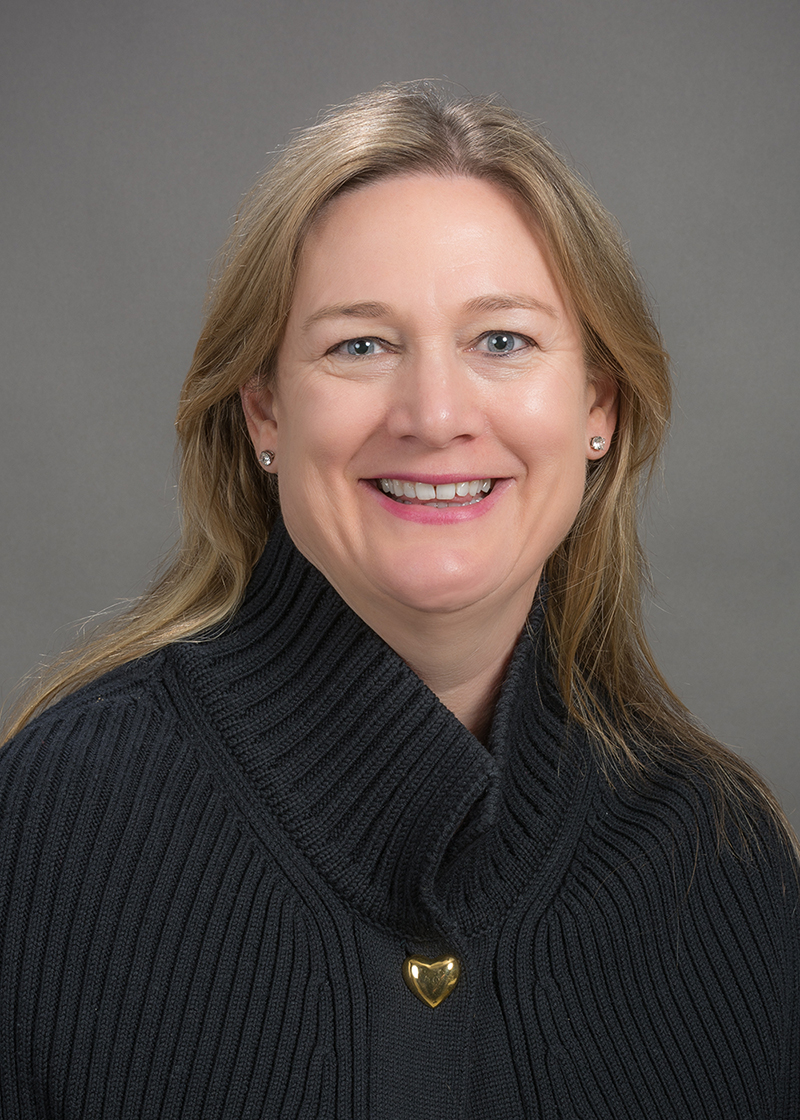
A transformative leader
Dr. Barbara Jung joined the University of Washington Department of Medicine as its sixth chair on Sept. 1, 2019.
Jung has accepted the position of Associate Vice Chancellor and Dean of the School of Medicine at the UC San Diego, effective Jan. 1, 2025.
She has broken barriers in her career many times, and this was no exception. She is our first female chair, and the first external hire since the department’s first chair, Dr. Robert Williams. In 2023, she also became the 118th President of the American Gastroenterology Association and the organization’s 4th woman leader. At UC San Diego, she will be their first female dean.
Six months into her first year at the UW, the pandemic hit. She mounted a nationally recognized COVID response, jumpstarted our telehealth services, increased faculty productivity, and implemented an innovative strategy for financial mitigation. Her leadership during this unprecedented time was acknowledged by a nomination for the University of Washington’s highest leadership award early into her second year as chair.
“I am most proud of the community we’ve built despite all of the challenges around COVID, or maybe because of these challenges” says Jung. “We rallied together and built a strong bond. And together we got to decide who we wanted to be as a department, how we wanted to be seen by other departments, how we wanted to be seen nationally, how we wanted our patients to be treated, how we wanted to advance research, and how we wanted to teach and guide the next generation. There is a departmental culture that we created together that allows everything to thrive and that was the goal.”
Under her leadership the department has grown significantly with a focus on leading in innovative research, clinical care and education, investing in our employees, elevating our teaching mission, and nurturing a supportive, collaborative, and accountable culture where equity, diversity, inclusion and integrity are at the center.
Here are some highlights of her accomplishments:
Programmatic highlights
Uniting Hematology and Oncology
In 2022, the Seattle Cancer Care Alliance and Fred Hutchinson Cancer Research Center merged to form Fred Hutchinson Cancer Center, a unified adult cancer research and care center that is clinically integrated with UW Medicine and UW Medicine’s cancer program.
Building on this transformative energy, the Department of Medicine’s academic Divisions of Hematology and Medical Oncology united to form a joint Hematology/Oncology Division at the University of Washington in 2023.
Dermatology became a department
Our Division of Dermatology officially became an academic department under the University of Washington School of Medicine on Oct. 1, 2023.
Strategic planning
Recognizing that the COVID challenges made robust strategic planning even more important than ever, in 2020, we embarked on the first department-wide strategic plan since 2006.
Our plan has four main pillars – to lead in innovation of patient care delivery and research; nurture a supportive, collaborative culture where equity, diversity and inclusion are at the center; invest in our trainees, staff, and faculty; and elevate and sustain excellence in teaching.
Under Jung's leadership, the Strategic Plan workgroups identified a total of 114 initiatives from 2021-2024 (35 for year 1, 41 for year 2, and 37 for year 3).
Notably, the workgroups have achieved an impressive nearly 60% completion rate for year 1 and 2 initiatives, with longer-term projects transitioning into year 3 goals which officially kicked off in September 2024.
patient care 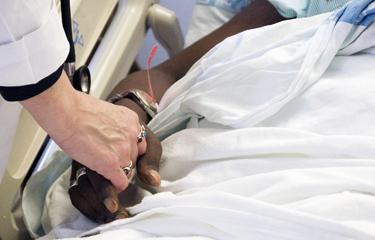
From 2020 to today, the department has grown almost 40% in clinical FTE and will have almost doubled in wRVUs, accomplishing a total of 1,784,191 by the end of the year. All of our divisions have expanded, with high growth areas for hospitalists, oncology, and cardiology.
To optimize our clinical activity and delivery of care, we created two new positions: executive vice chair, overseeing clinical programs, and senior director of clinical programs.
Telehealth
During the pandemic, our telehealth services grew to 143,651 visits (compared to 34 annual visits in pre-pandemic years). Prior to the pandemic we had about 200 providers using telemedicine and we were averaging 200-300 visits a month. In FY24, we had 216,526 telemedicine encounters.
NW Hospital Integration
The integration of Northwest Hospital into UW Medicine in 2019 – which included transitioning 124 Physicians and Advanced Practice Professionals to UW/UWP employment, 56 into the Department of Medicine in six divisions – brought with it many new colleagues and opportunities to expand our clinical practices.
Kidney-Heart Service
In August 2020 we launched the Kidney-Heart Service (KHS) at UWMC-Montlake, a new inpatient and outpatient consultation service focused on specialized care of patients with concomitant kidney and heart disease.
Latinx Diabetes Clinics
The Latinx Diabetes Clinic opened in 2020 to decrease healthcare disparities in Latinx patients with diabetes and address cultural and linguistic barriers to high-quality care for this underserved population, and the Latinx Diabetic Kidney Disease Clinic opened in 2024.
UW Transplant Institute
Launched in 2022 and initially co-led by Jung, the UW Medicine Transplant Institute brings together UW Medicine’s organ transplant services: liver, kidney, pancreas, and lung.
Research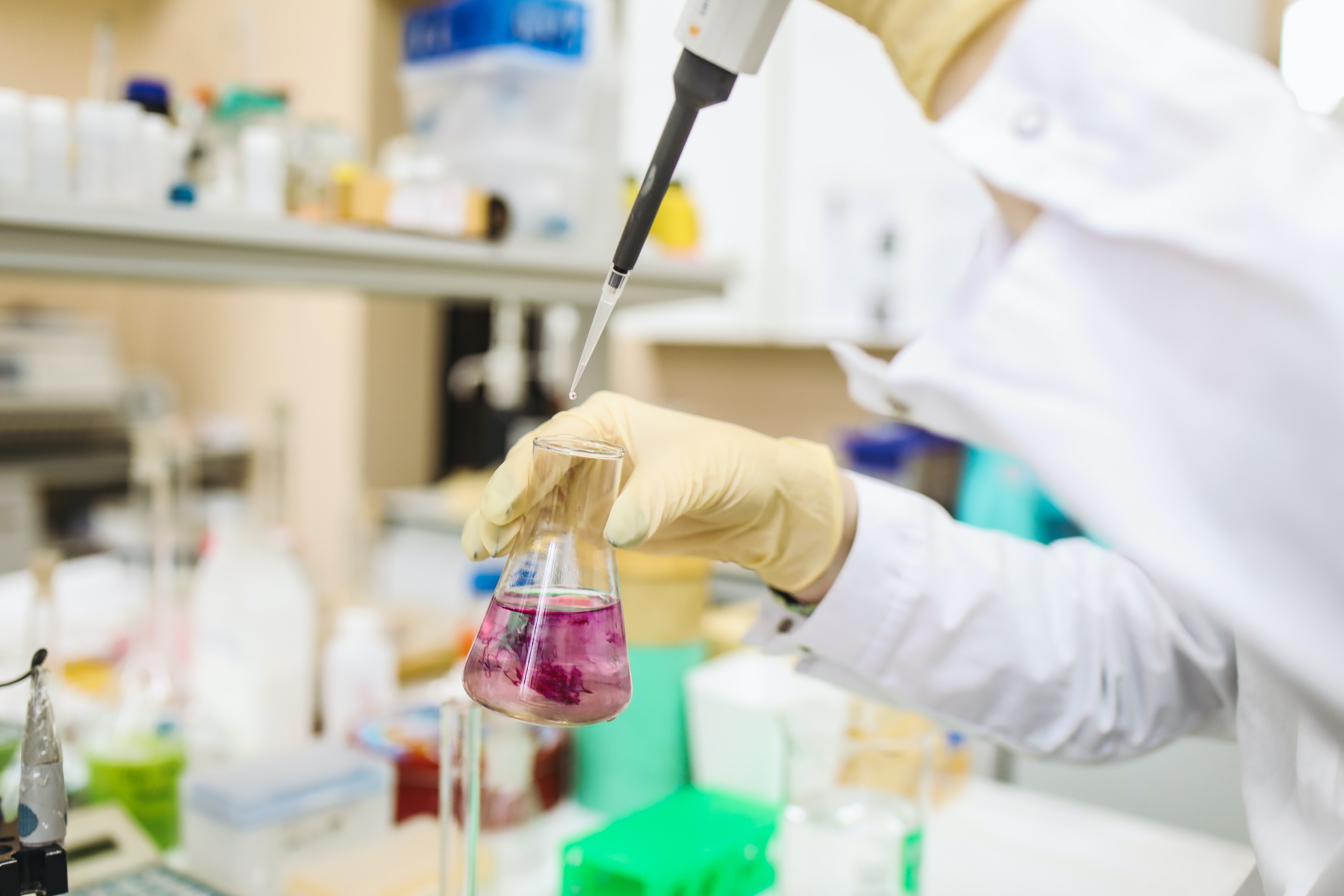
We have a long tradition of leading-edge research that has yielded some of the most important innovations in the history of modern medicine.
Research Centers
We have over 35 research centers and institutes in the Department of Medicine. New Research Centers established under Jung include:
The UW Medicine Diabetes Institute opened in 2019, bringing together basic research, clinical care and translational research under one roof.
The Sepsis Center of Research Excellence was established in 2020 as a global collaboration between a network of hospitals, industry, blood banks, universities and funding partners, working to improve clinical outcomes globally in critically ill sepsis patients.
The Center for Innovations in Cancer & Transplant was established in 2021 to integrate healthcare and research to transform the lives of people with cancer and organ transplants.
A joint Diagnostic Center of Excellence (University of Washington and Brigham and Women’s Hospital) was created in 2022 to identify, support and learn from marginalized patients who experience delayed cancer diagnosis.
Equity Academic Scholar Award
We created the Department of Medicine Equity Academic Scholar Awards in 2021 to assist highly qualified and meritorious trainees in their transition to assistant professors.
Microbiome Center
A new center to study microbiomes was established in 2023 to explore the science behind the dynamic communities of bacteria, fungi and other microscopic lifeforms.
Research dashboard
The launch of the Department of Medicine Research Dashboard in 2024 represents a significant advancement in research data visualization and analysis. This tool provides valuable insights into research trends and performance.
Data Analytics and Biostatistics Core
We have committed to a data analytics and biostatistics core, which will be available to the entire department.
Diversity, Equity, Inclusion and Belonging
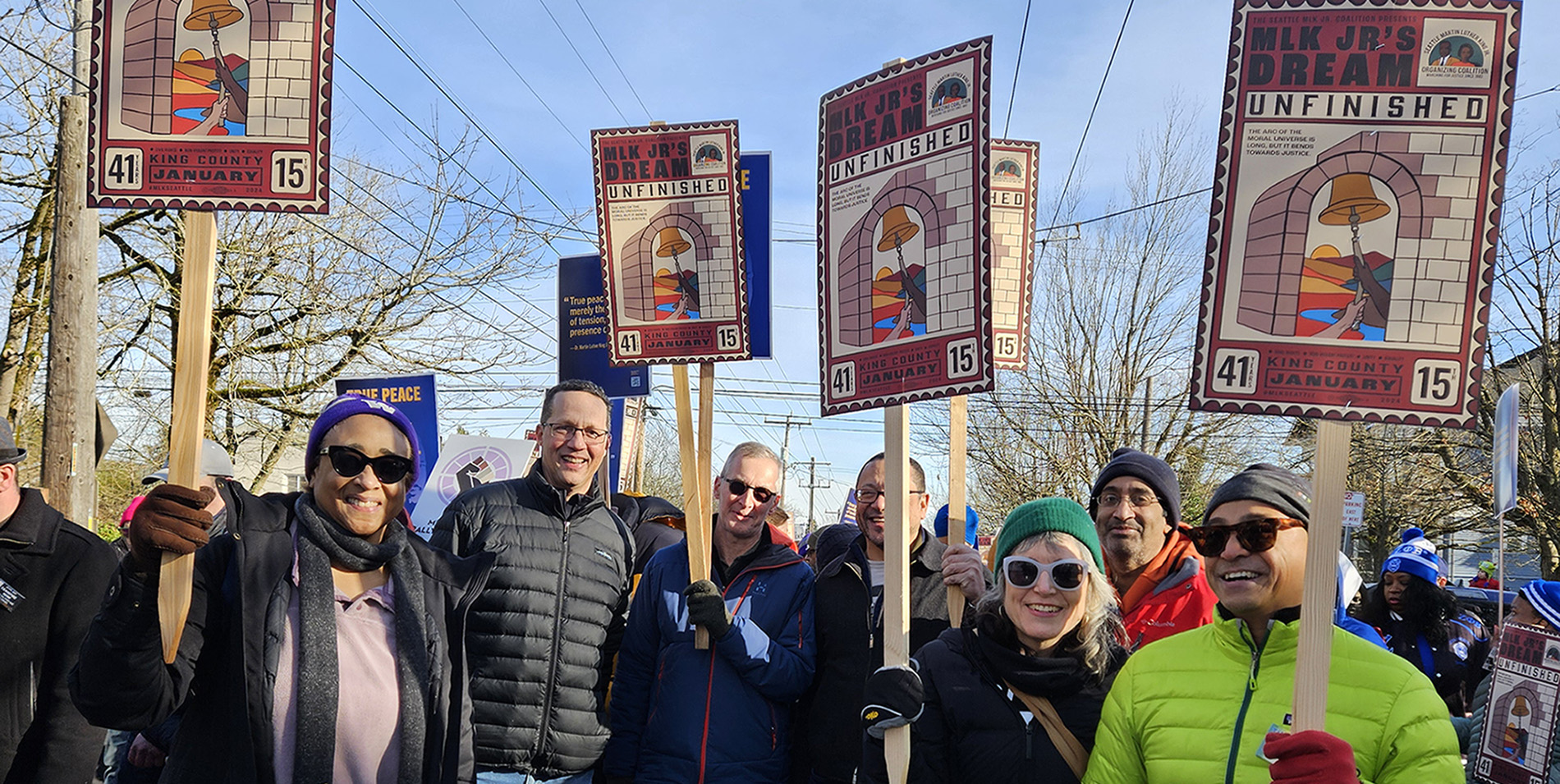
Jung has been committed to increasing the recruitment, retention, and advancement of faculty, fellows, residents and staff from groups underrepresented in medicine, and promoting an inclusive environment across the department.
She dedicated considerable resources to the departmental DEI office, including creating a DEI program manager position and increasing funding for the Associate Chair for DEI position.
Our division leadership is now >70% women and/or minority ethnic group, and we have increased diversity of our incoming residency class with each match. Our latest class is 71% women and very diverse with 47% self-identified people of color.
Visiting Resident Scholars Program
Building on the success of our Visiting Scholars Program, we created the Visiting Resident Scholars Program in 2019, a funded program designed to give Internal Medicine Residents with a diverse background a chance to experience the training that the University of Washington Department of Medicine has to offer. Our first visiting resident subsequently matched into our Infectious Disease fellowship.
Health Equity Pathway
We developed the inaugural Internal Medicine Residency Program's Health Equity Pathway, designed to equip residents in applying anti-oppression frameworks to combat the structural origins of health inequities in clinical care and advocacy.
Gender Equity Council
The Gender Equity Council was formed in 2020 to advise the chair on matters related to gender equity, make recommendations to ensure an equitable and inclusive environment in the department, and plan and implement activities that promote gender equity.
Barbara Jung Gender Equity Champion Awards
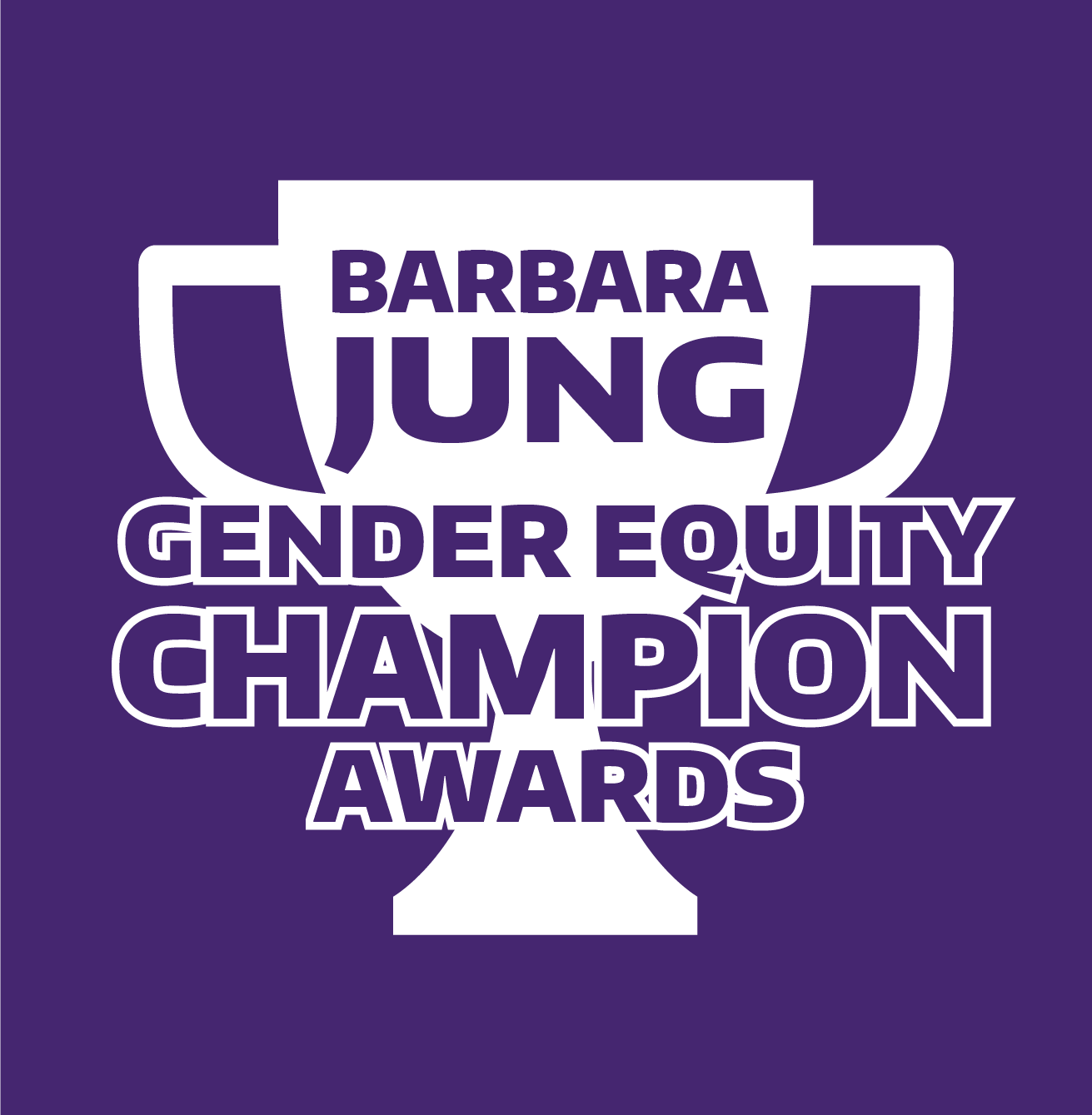 The Gender Equity Awards were created in 2022 to recognize and celebrate individuals who are advancing women/gender minorities in medicine through mentorship, leadership, advocacy, teaching and/or research.
The Gender Equity Awards were created in 2022 to recognize and celebrate individuals who are advancing women/gender minorities in medicine through mentorship, leadership, advocacy, teaching and/or research.
In honor of her many contributions to gender equity in the Department of Medicine, the awards were renamed the Barbara Jung Gender Equity Champion Awards in 2024.
LGBTQ+ Council
In 2021, we formed the LGBTQ+ Council to advise the chair on matters related to gender identity and sexual orientation equity, makes recommendations to ensure an equitable and inclusive environment in the department, and plans and implements activities that promote sexual orientation and gender identity equity.
DEI Lecture Series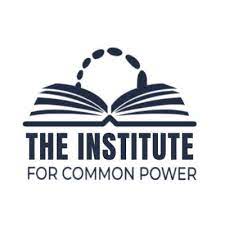
In 2022, we partnered with the Institute for Common Power to provide a quarterly DEI lecture series, and have presented six lectures to date.
Bias Navigator Program
Our Bias Navigator Program launched in 2023. Navigators are trained individuals dedicated to providing safe, confidential support to help guide Department of Medicine staff, faculty and trainees through bias incidents they may have experienced.
education
 Our faculty are recognized locally, nationally, regionally and internationally for excellence in teaching. To help support a more equitable and inclusive learning environment for students, trainees, and for the faculty and staff who support them, we created a Vice Chair for Education position in 2023.
Our faculty are recognized locally, nationally, regionally and internationally for excellence in teaching. To help support a more equitable and inclusive learning environment for students, trainees, and for the faculty and staff who support them, we created a Vice Chair for Education position in 2023.
Physician Scientist Learning Pathway/Track
The Department of Medicine values biomedical research, physician-scientists, and education. The Internal Medicine Residency Program’s Physician-Scientist Learning Pathway was created in 2019 to provide dedicated research time, mentorship, a core curriculum, and professional development activities to interested residents planning careers as physician-scientists.
Our Physician-Scientist Track was designed in 2023 for Internal Medicine residents who plan to focus the majority of their effort on basic/translational or clinical research. Individuals in this track can match into a combined clinical and research fellowship in a medicine subspecialty after they complete two clinically-focused years of Internal Medicine residency.
We are recruiting for combined positions with Cardiology, Endocrinology, Hematology/Oncology, Infectious Diseases, Nephrology, and Rheumatology in the 2025 Match.
Master of Science in Genetic Counseling Program
Our new Master of Science in Genetic Counseling program (the first in Washington state, second in WWAMI region) welcomed its first class in September 2021. This is the only master’s program in the UW School of Medicine.
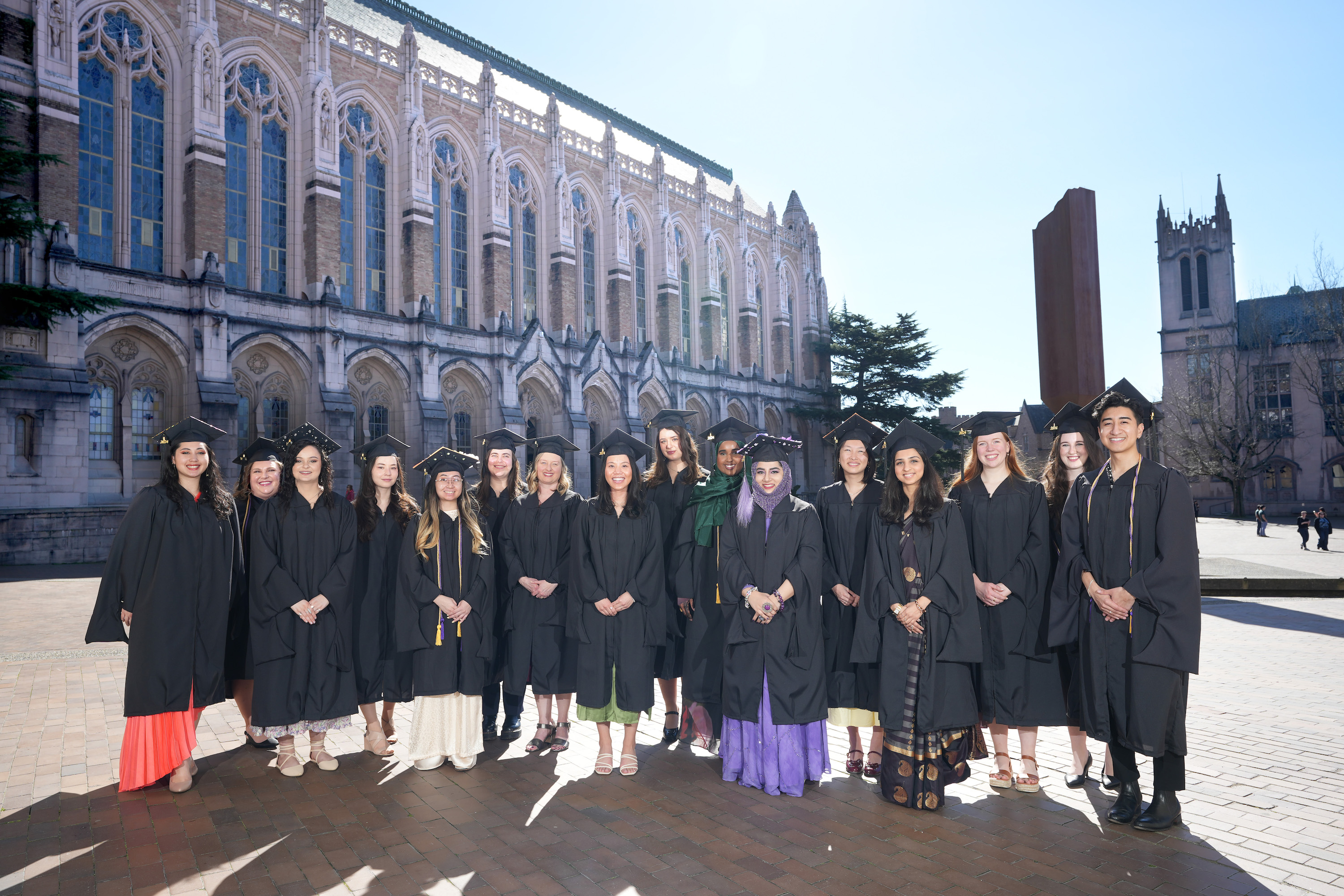
Boise Addiction Medicine Fellowship
Based in Boise, Idaho, our Addiction Medicine Fellowship is a one-year program that strives to provide a unique and collaborative approach to education in the diagnosis and treatment of substance use disorders through a variety of inpatient, outpatient, and residential treatment programs that will prepare trainees to provide an evidence-based and multi-disciplinary approach to the field of Addiction Medicine.
Alaska Residency Program

Our new Alaska Internal Medicine Residency Program is the very first accredited rural residency training program in Internal Medicine in the country.
It offers the best of both worlds by combining the educational expertise of a well-established urban academic program with a novel primary care training experience in rural Alaska.
Center for Indigenous Health
The Center for Indigenous Health was formed in 2023 to improve Indigenous health by expanding opportunities for American Indian and Alaska Native (AIAN) premedical students, medical students and academic faculty throughout the full spectrum of educational and career stages.
Combined Internal Medicine-Medical Genetics and Genomics program
There is a shortage of physician scientists who are trained to apply genomics to the care of adult patients and are able to implement genomics in the health care system.
To address this need, we created a 4-year combined residency program leading to dual board-eligibility in both specialties.
Integrated Geriatrics and Palliative Medicine Fellowship
We received approval to launch an official Integrated Geriatric and Palliative fellowship. This two-year program leads to board certification in both specialties and allows for up to eight months of protected time for scholarship and development as a leader.
investing in our people
Jung says that what makes our department special is our people.
“From the beginning, there was such a commitment to excellence," she says. “This department has a momentum that’s anchored in people wanting to do their very best.”
Recruitment
Leadership
Jung has recruited an unprecedented number of key leaders to the department, including 6 division heads (and there are currently two open searches for division heads) and 8 division administrators.

She also created several new leadership positions: Executive Vice Chair, Vice Chair for Education, Assistant Vice Chair for Clinical Research, Associate Chair for Faculty Affairs, Associate Chair for Health Systems, Senior Director of Clinical Programs, Senior Director of Operations, and Program Director for Diversity, Equity and Inclusion.
Leadership training
We provided a 360-degree feedback program to a small group of leaders in the department, to provide a valuable opportunity for participants to learn about themselves and receive valuable tools to be the most effective leaders. This was very successful and we are going to expand on this program.
Retention
Our University of Washington Physicians non-compete clause is no longer in effect for all department faculty as of Jan. 1, 2024.
Promotions
We have continued to have high rates of promotion across all promotable faculty titles. Increases in promotions over our previous 4-year average include 21% (WOT/Tenure), 62% (clinical), and 100% (volunteer).
We launched a new Clinical Practice Track and a DEI pathway on WOT/tenure track to recognize faculty contributions to diversity, equity, and inclusion in research, education, clinical care, and advocacy.
LIFT program
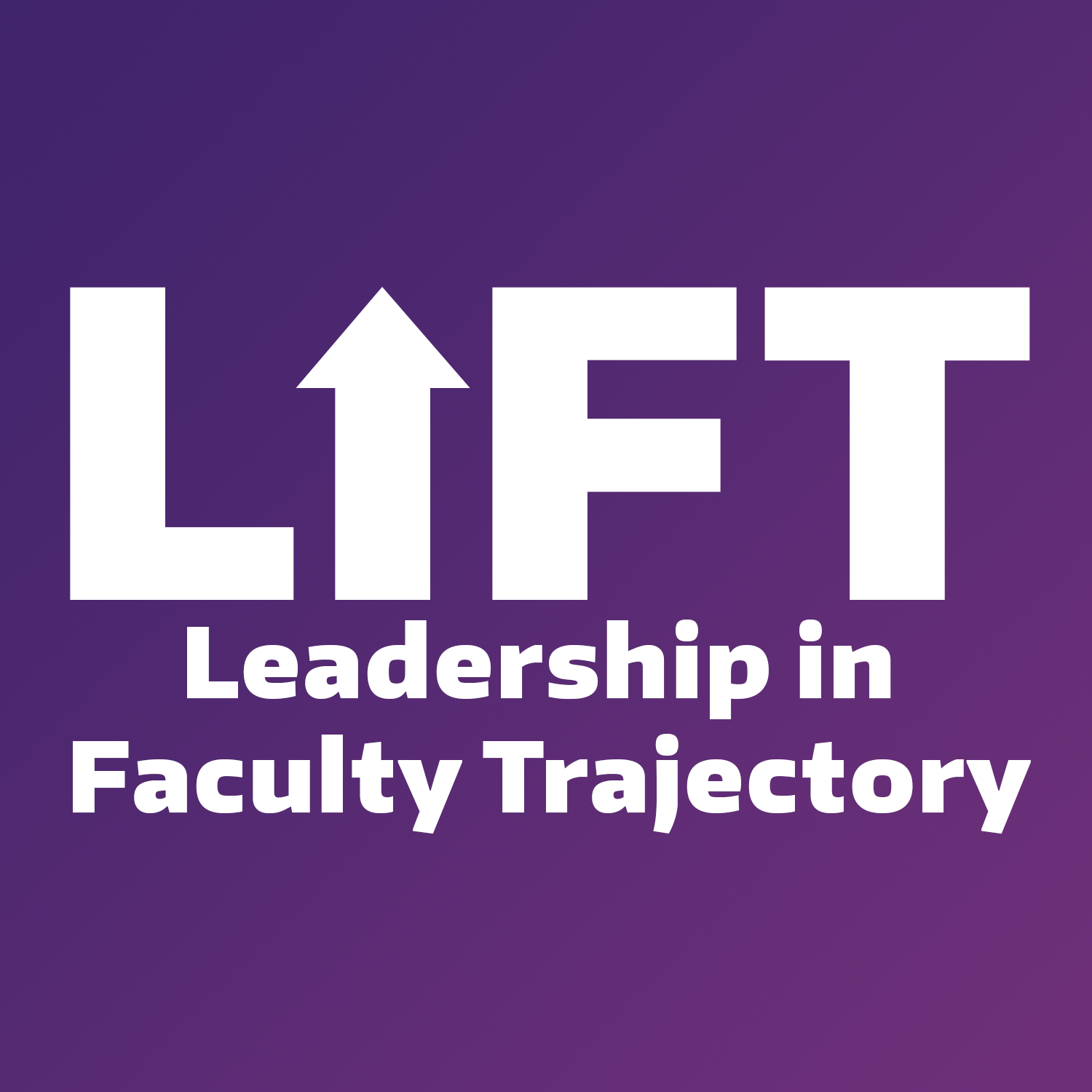 We started a pilot program in 2022 to increase preparedness for the faculty promotion process. The Leadership in Faculty Trajectory (LIFT) program helps faculty, particularly women faculty, access sponsorship and individualized guidance for the promotion process.
We started a pilot program in 2022 to increase preparedness for the faculty promotion process. The Leadership in Faculty Trajectory (LIFT) program helps faculty, particularly women faculty, access sponsorship and individualized guidance for the promotion process.
The results from our pilot showed that the majority of participants found that the committee provided them with actionable advice for improving their promotion portfolio and increased their confidence in going up for promotion. This program has now been rolled out to the entire department.
Unit Adjustments
Our successful clinical productivity and annual fundraising allowed us to invest of $11M in unit adjustments over the last 4 years to raise faculty compensation.
Culture and well-being
The Department of Medicine is a remarkable community of dedicated and compassionate individuals. Supporting the well-being of this community is among our highest priorities.
“Medicine is a 24/7 endeavor,” says Jung. “And we need to figure out the right ingredients to be successful. How can we best serve our patients while staying well ourselves?”
Supporting families
During the pandemic, Jung was one of the first leaders in UW Medicine to recognize the large unmet need for childcare. The department created a website to help match UW Medicine frontline employees with child care. She held a town hall on childcare, which created a much-needed dialogue on finding creative solutions for families with children to help support a stable home environment.
The Gender Equity Council recently compiled a list of lactation spaces across all our facilities, and the department now offers a coolers and ice packs for those in need of portable breast milk storage. We have also proposed a lactation policy to the School of Medicine to advocate for implementation system-wide.
Quiet weeks
To rebuild resilience and focus on mental health, Jung initiated department-wide quiet weeks throughout the year. During these weeks, we ask individuals to, if possible, limit non-essential meetings to recharge and reflect, as well as thoughtfully minimize emails.
Reconnection
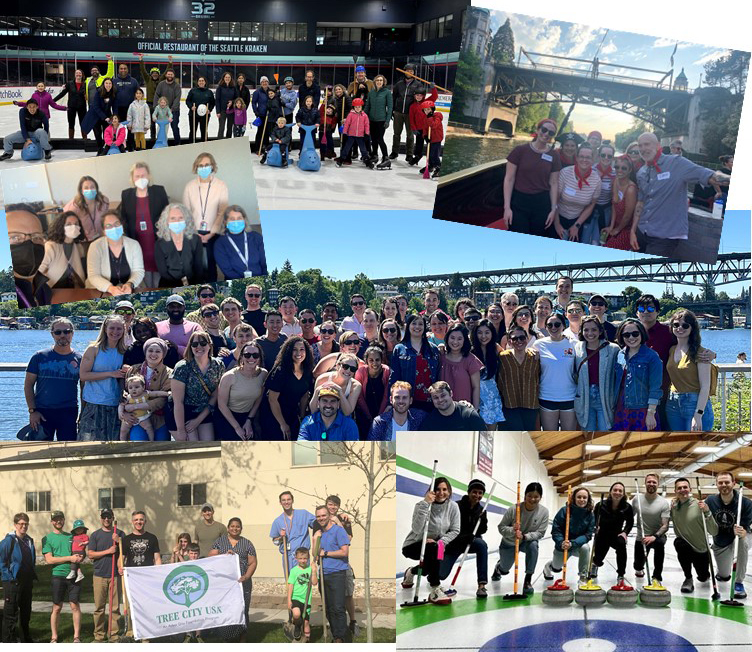 To support connection in our own community, we have been offering funding to support and promote reconnection events in the department since 2022, as a way to foster community building and colleague connections.
To support connection in our own community, we have been offering funding to support and promote reconnection events in the department since 2022, as a way to foster community building and colleague connections.
We have funded multiple reconnection events and the program has been highly successful.
We also started hosting an annual sporting event to connect with each other outside of the office.
Commensality groups/communities of practice
The Department of Medicine is focused on building community and a culture of well-being for faculty and staff. Our commensality groups seek to strengthen community, collegiality, and social connection amongst faculty. We have also started communities of practice for staff.
Faculty coaching
We recently partnered with the University of Colorado to pilot an online faculty coaching program, Better Together, to clinicians in our divisions of Cardiology, Gastroenterology, Gerontology & Geriatric Medicine, and our Internal Medicine Residency Program.
Supporting staff
“We are stronger together," says Jung. "And I so appreciate and recognize our staff and staff dyad leaders, who are vital to our department and our missions."
Staff Spotlights
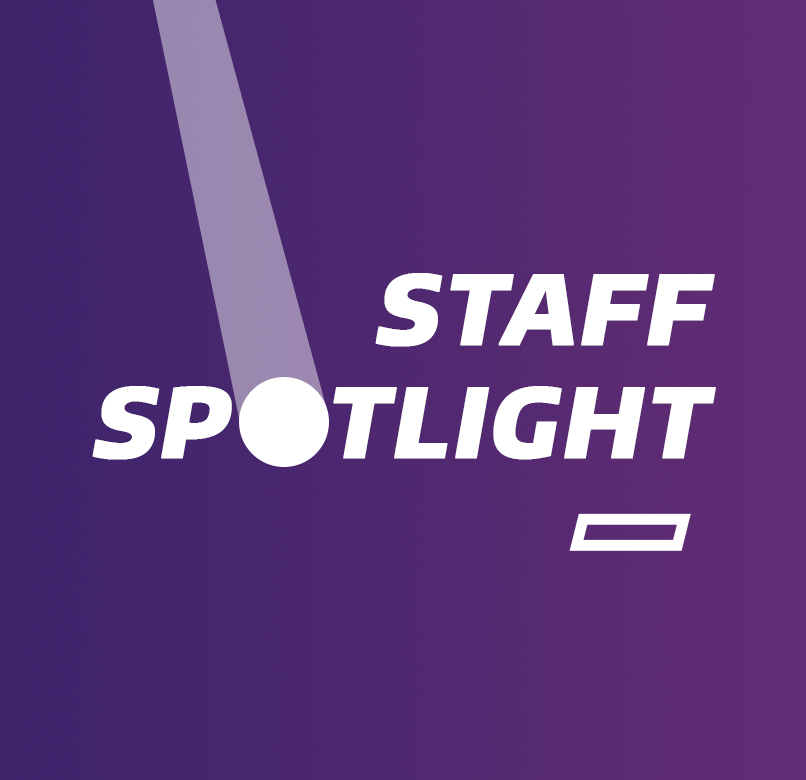 We launched the staff spotlight series in 2020 to highlight staff achievements, help our staff get to know each other and what we all do, and encourage engagement and camaraderie across the department.
We launched the staff spotlight series in 2020 to highlight staff achievements, help our staff get to know each other and what we all do, and encourage engagement and camaraderie across the department.
We also honored over 100 legacy staff members who had worked at the UW for 20 or more years (as of 2020.) These staff bring a wealth of history, knowledge and dedication to our department, and showcase how this University and department are great places to work.
Recognizing staff
The Outstanding Staff Awards were established in 2023 to recognize and celebrate exceptional staff members who are dedicated to supporting our organization’s mission of teaching, healing, discovery, and diversity and upholding core values.
We also launched the Staff Shout Outs program in 2023 to recognize the outstanding work of our staff members in the department.
Professional Development
A staff professional development fund was created in 2024 to support staff in seeking professional development opportunities and the first group of recipients will be announced in the coming weeks. Professional Development Scholarships provide funds to help Department of Medicine staff prepare to advance careers in education, health and medical sciences, or social sciences.
Outreach
Since joining the UW, Jung has held informal “meet and greets” at UWMC-Montlake, UWMC-Northwest, Harborview, South Lake Union, and the Seattle VA. She gives an annual Medicine Grand Rounds, and writes an annual, end-of-year chair’s blog.
For the first seven months of the pandemic, she wrote a weekly email to all department employees (and one video message) which allowed all faculty and staff to directly engage with her. She also personally called all members of our faculty who worked in the ICU during COVID-19 to thank them for their selfless care.
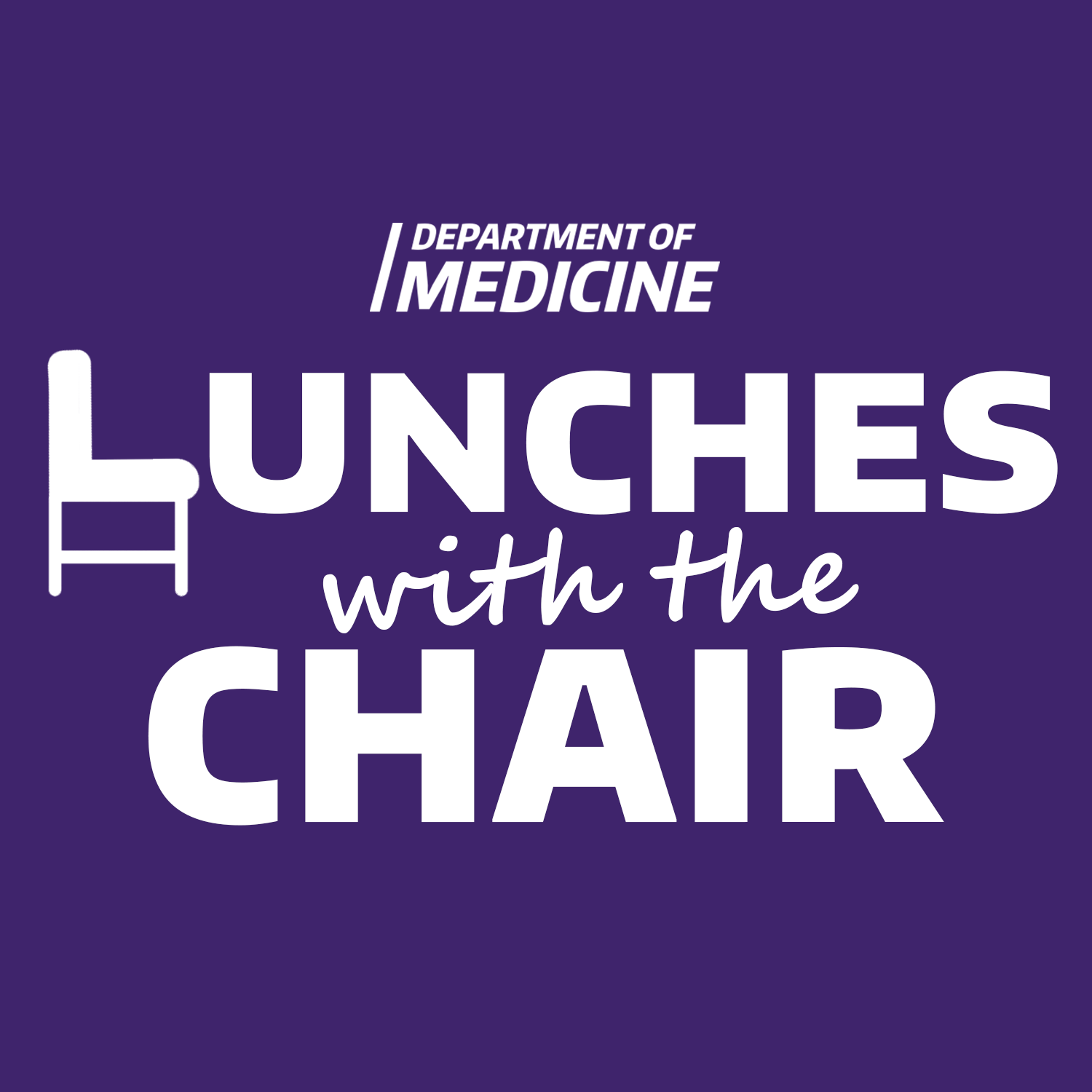 She recently started Lunches with the Chair to provide a casual opportunity to bridge connections and foster community throughout the department. These lunches were an opportunity for staff, trainees, and faculty to engage in informal discussions outside their daily work environment, as well as get to know her better. Attendees were randomly selected from various division and roles within the department.
She recently started Lunches with the Chair to provide a casual opportunity to bridge connections and foster community throughout the department. These lunches were an opportunity for staff, trainees, and faculty to engage in informal discussions outside their daily work environment, as well as get to know her better. Attendees were randomly selected from various division and roles within the department.
Celebrating the Department
The department celebrated its 75th anniversary in 2023.
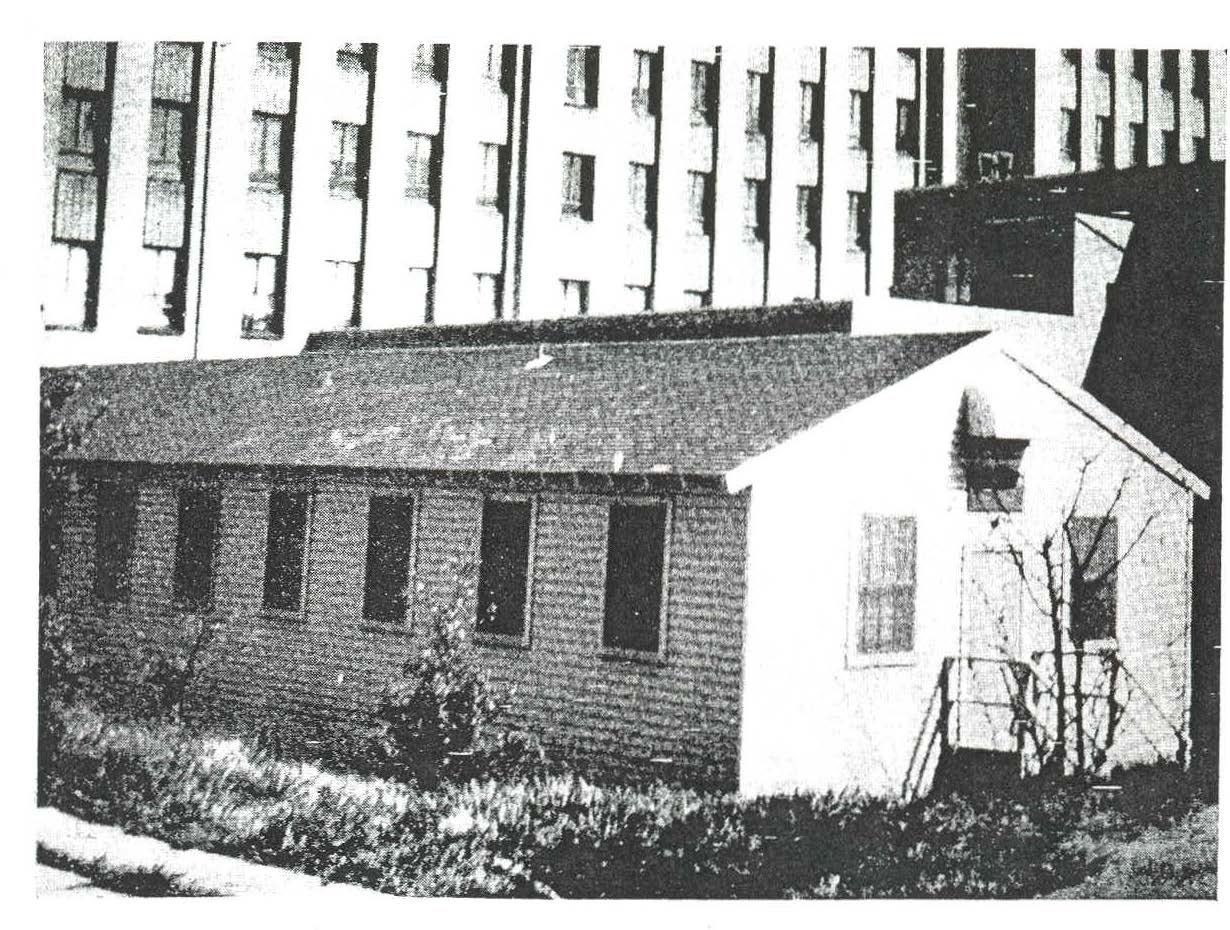
“This is an amazing department,” says Jung. “I am really proud of the momentum we’ve built, how we’ve defined what it means to be a department, and the culture we’ve created together. I am so thankful to all the people who embraced me as their chair, and who opened up and allowed themselves to see things a bit differently. I exit this role with the conviction that the department is strong and will continue to thrive.”